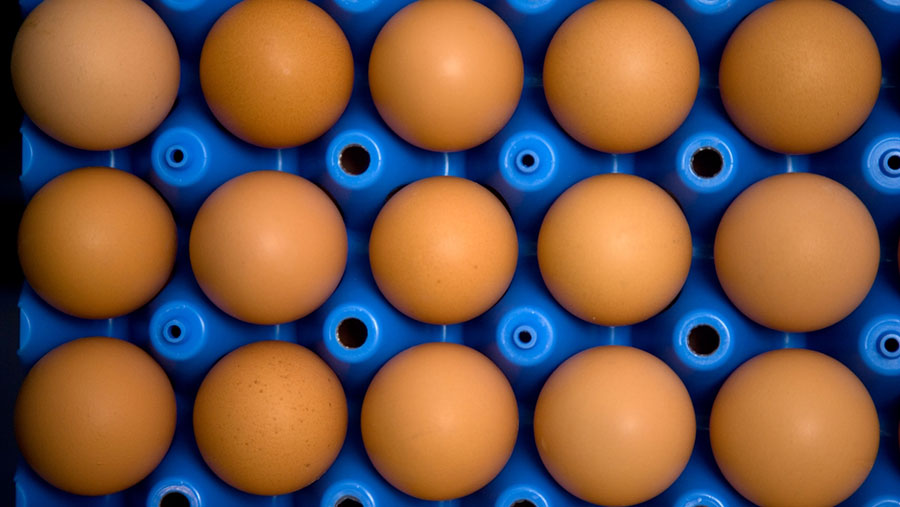Free-range egg contracts ‘not worth the paper they are written on’
 © Tim Scrivener
© Tim Scrivener Work is under way to determine the fairness of free-range egg contracts.
The British Free Range Egg Producers Association (Bfrepa) is calling on farmers to send in their contracts with a view to drawing up a model arrangement between primary producers and egg packers.
The initiative was launched at the organisation’s AGM last week, where Bfrepa chief executive Robert Gooch described some of the contracts he had seen to date as “not worth the paper they are written on”.
Mr Gooch said many arrangements promised a minimum “breaking price” – typically about 30p/doz for second-quality eggs, but no guaranteed price for grade-A eggs, which usually sell for about three times more.
See also: 6 top tips for free-range egg production
Free-range egg facts
- The average price free-range producers receive has fallen from £1/dozen to 82p/dozen from March 2015 to March 2018 (Source: Defra)
- Over the past three years the free-range egg industry has been growing by 10% a year
- 60% of eggs purchased by consumers through retailers are free-range
Source: Bfrepa
“We would suggest to our members that they need something more substantial than that,” he said.
In addition, many contracts are structured with no relation to input cost, potentially leaving farmers vulnerable when the price of feed – by far the biggest expense for poultry producers – goes up.
Contracts that link feed costs to the price paid for eggs are becoming more common, Mr Gooch added, but some insist feed and pullets must be bought from approved suppliers, potentially affecting margins. There were other examples where prices had been cut by packers mid-way through such agreements, he said.
The length of contracts, as well as the terms surrounding their termination, are also under review.
“Supply contracts are the foundation of most free-range egg businesses, but it is alarming to see so many examples with no reference to the price producers will be paid for their product,” Mr Gooch said.
“My members need to know where they stand so they can continue to invest in their businesses to make them more efficient and maintain the excellent standards of hen welfare we see on British free-range farms.”
Mr Gooch also cautioned against oversupply in the egg sector, pointing to rapid expansion in Wales, Scotland and Northern Ireland in particular.
“The free-range egg sector has expanded by two million birds every year for the past three years. We are now getting into a position where prices are under significant pressure.”
